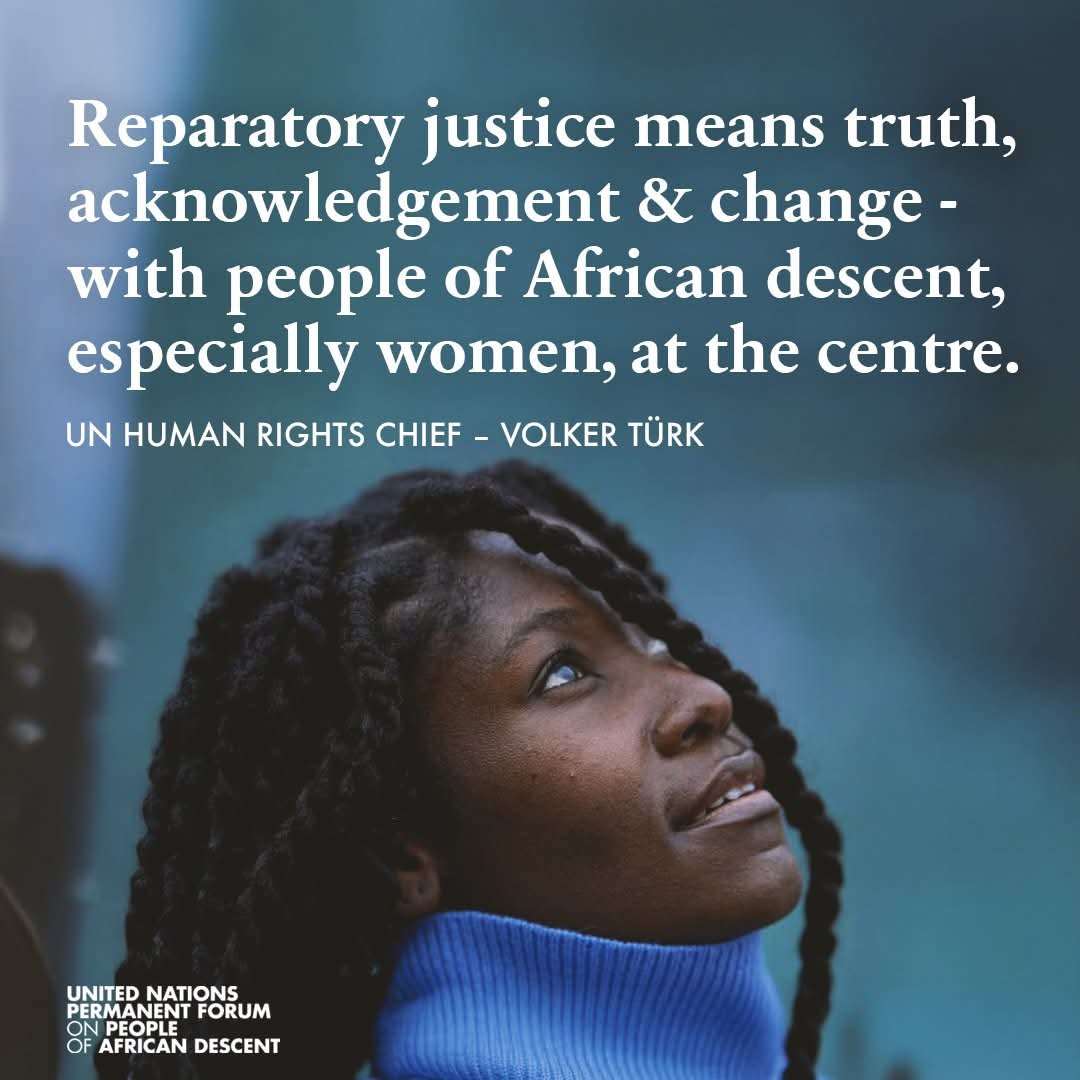UN Permanent Forum’s Fourth Session Reinforces Calls for Reparatory Justice for People of African Descent
The Fourth Session of the United Nations Permanent Forum on People of African Descent convened at UN Headquarters in New York from April 14th to 17th, 2025, marking a crucial juncture in the global movement for reparatory justice. Under the theme “Africa and People of African Descent: United for Reparatory Justice in the Age of Artificial Intelligence,” the forum, organized by the UN Human Rights Office, provided a platform for renewed and amplified calls for reparations for the enduring legacies of slavery and colonialism. UN Secretary-General António Guterres, in a statement delivered by his Chef de Cabinet, Courtenay Rattray, underscored the necessity of establishing reparatory justice frameworks grounded in international human rights law. He emphasized the importance of inclusive and meaningful participation from affected communities in the development of these frameworks, acknowledging the profound and ongoing ramifications of historical injustices. This call to action set the tone for a week of intense deliberation and advocacy.
The forum’s agenda encompassed a broad spectrum of critical issues, with thematic discussions and side events focusing on reparatory justice, human rights for women and girls of African descent, the insidious nature of systematic racism in policymaking, and the implications of artificial intelligence and digital justice for people of African descent. The event also commemorated the 10th anniversary of the unveiling of “The Ark of Return,” a permanent memorial at the UN honoring the victims of slavery and the transatlantic slave trade. This commemoration served as a poignant reminder of the historical context for the ongoing struggle for reparatory justice and the need for concrete action.
H.E. Dr. Mutryce Williams, the Permanent Representative of Saint Kitts and Nevis to the United Nations, actively participated in the forum and emphasized the pivotal role of the Permanent Forum in elevating the global dialogue on reparations. Representing a nation whose population is predominantly of African descent, Dr. Williams echoed the global call for reparations and advocated for stronger partnerships between Saint Kitts and Nevis, CARICOM, and the African Union in advancing the reparations movement. She stressed the urgent need for an intersectional approach to address the multifaceted dimensions of historical injustices and, crucially, the importance of transitioning from dialogue to tangible outcomes. Dr. Williams called for the development and negotiation of concrete reparations packages with the entities that profited from the transatlantic slave trade, urging a shift from theoretical discussions to actionable plans.
Dr. Williams’s call for concrete action reflects a growing impatience with the slow pace of progress on the reparations issue. She emphasizes the need to move beyond discussions and symbolic gestures towards tangible reparations that address the economic and social disparities stemming from centuries of exploitation. This sentiment underscores the urgency felt by many nations and communities impacted by the legacy of slavery and colonialism. The call for “reparations packages” suggests a move towards quantifiable and actionable measures that can be implemented to redress historical injustices.
The Attorney General of Saint Kitts and Nevis, while not directly quoted in the original text regarding reparations, highlighted the Federation’s commitment to sustainable development through trade, emphasizing the importance of collaborative efforts in achieving this goal. While the connection to reparations is not explicitly made in the provided text, it can be inferred that economic development and reparatory justice are interwoven issues for Saint Kitts and Nevis. The Attorney General’s remarks underscore the importance of international cooperation and consensus-building in addressing socio-economic challenges. This echoes the broader theme of collaboration and partnership emphasized by Dr. Williams in the context of reparations.
Dr. Williams and her team at the Permanent Mission of Saint Kitts and Nevis to the United Nations actively worked to secure representation on bodies addressing international tax cooperation, recognizing the importance of this issue for the economic advancement of their nation. This proactive approach reflects a commitment to engaging in international forums that can impact the economic well-being of Saint Kitts and Nevis. By participating in discussions on international tax cooperation, Dr. Williams and her team aim to contribute to a more equitable and just global financial system, which aligns with the broader goals of the reparations movement. This engagement further underscores the interconnectedness of economic development, international cooperation, and the pursuit of reparatory justice.
Share this content:












Post Comment